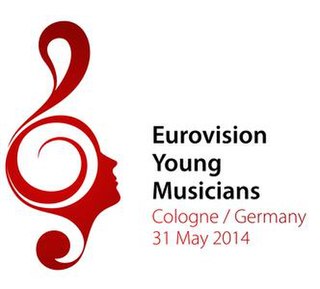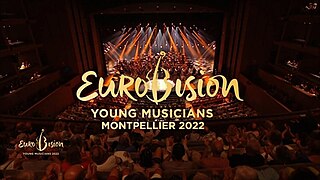
Austria has participated in the Eurovision Song Contest 56 times since its debut in 1957. The country has won twice, in 1966 and 2014, and such it holds the record for the longest gap between consecutive wins — 48 years. The Austrian participant broadcaster in the contest is Österreichischer Rundfunk (ORF). Vienna was the host city on both of the occasions that the contest was held in Austria, in 1967 and 2015.

The participation of Latvia in the Junior Eurovision Song Contest first began at the inaugural Junior Eurovision Song Contest in 2003 which took place in Copenhagen, Denmark. Latvijas Televīzija (LTV), a member of the European Broadcasting Union (EBU), were responsible for the selection process of their participation. Latvia used a national selection format, broadcasting shows entitled "Bērnu Eirovīzija" and later "Balss Pavēlnieks", for their participation at the contests. The first representative to participate for the nation at the 2003 contest was Dzintars Čīča with the song "Tu esi vasarā", which finished in ninth place out of sixteen participating entries, achieving a score of thirty-seven points. Latvia were originally absent from the competition from 2006 to 2009. Latvia briefly returned in 2010 and 2011 however again withdrew from competing after the contest held in Yerevan, and have yet to make their return to the contest.

Eurovision Young Musicians, often shortened to EYM, or Young Musicians, is a biennial classical music competition for European musicians that are aged between 12 and 21. It is organised by the European Broadcasting Union (EBU) and broadcast on television throughout Europe, with some countries holding national selections to choose their representatives for the contest.

The participation of Israel in the Junior Eurovision Song Contest first began in Amsterdam, Netherlands, at the Junior Eurovision Song Contest 2012. The Israel Broadcasting Authority (IBA) a member organisation of the European Broadcasting Union (EBU) were responsible for the selection process of their participation in 2012 and 2016, with the Israeli Public Broadcasting Corporation (IPBC) taking over participation from 2018. The first representative to participate for the nation was Kids.il with the song "Let the Music Win", which finished in eighth place out of twelve participating entries, achieving a score of 68 points. Israel did not return to the contest in 2013, and also sat out of the 2014 and 2015 contests. However, following their success at the 2015 and 2016 Eurovision Song Contests, the IBA expressed an interest in making a return to competing at Junior Eurovision. Israel returned to the contest in 2016, with their entrant being selected internally. Israel then withdrew from the contest in 2017, before returning again in 2018, and withdrawing again in 2019.

The Eurovision Young Musicians 2014 was the seventeenth edition of the Eurovision Young Musicians, held outside the Cologne Cathedral in Cologne, Germany, on 31 May 2014. Organised by the European Broadcasting Union (EBU) and host broadcaster Westdeutscher Rundfunk (WDR), musicians from fourteen countries participated in the televised final. This was the fifth time that the competition was held on an open-air stage. Germany previously hosted the contest in 2002.

The participation of Slovenia in the Junior Eurovision Song Contest first began at the twelfth edition of the Junior Eurovision Song Contest in 2014 which took place in Marsa, Malta. Radiotelevizija Slovenija (RTVSLO), a member organisation of the European Broadcasting Union (EBU), were responsible for the selection process of their participation. Slovenia originally used an internal selection format for their participation at the 2014 contest. The first representative to participate for the nation at the 2014 contest was Ula Ložar with the song "Nisi sam ", which finished in twelfth place out of sixteen participating entries, achieving a score of twenty-nine points. Slovenia participated for a second time at the 2015 contest in Sofia, Bulgaria. This time, RTVSLO organised a children's spin-off of their Eurovision national final EMA to select their entry. Lina Kuduzović represented the nation with the song "Prva ljubezen". She finished in third place overall, achieving Slovenia's highest placing in both the adult and junior Eurovision Song Contest. Slovenia withdrew from the contest in 2016, citing that the decision was made based on changes to the contest rules by the EBU, although not specifying which rule changes influenced their decision to withdraw from the competition. Despite originally expressing an interest to return to the 2022 contest in Yerevan, Armenia, the plans did not flourish and Slovenia is yet to return to the event.

Croatia has participated in the biennial classical music competition Eurovision Young Musicians 14 times since its debut in 1994.

The United Kingdom has participated in the biennial classical music competition Eurovision Young Musicians sixteen times since its debut in 1982, most recently taking part in 2018 after a 8-year absence. The United Kingdom hosted the inaugural contest in 1982 and won the contest in 1994. The country returned to the contest in 2018 as hosts, but did not return for the next editions in 2022 or 2024.

Germany has officially participated in the biennial classical music competition Eurovision Young Musicians twenty times since its debut in 1982, winning the inaugural contest that year. Before German reunification in 1990, it was presented as West Germany, representing the Federal Republic of Germany. East Germany did not compete. Germany won again in 1996 and have hosted the contest twice, in 2002 and 2014.

Poland has participated in the Eurovision Young Musicians 15 times since its debut in 1992 and has won the contest three times to date. Poland hosted the contest in 1994.

Sweden has participated in the biennial classical music competition Eurovision Young Musicians 15 times since its debut in 1986, winning the contest for the first time in 2006. Sweden are yet to host the contest.

France has participated in the biennial classical music competition Eurovision Young Musicians eleven times since its debut in 1982. France won the contest in 1986, and hosted the 2022 edition in Montpellier.

Spain has participated in the biennial classical music competition Eurovision Young Musicians eight times since its debut in 1988, most recently taking part in 2018, after a 16-year absence. The country's best result is a second-place finish in 1992, the only time in which they qualified for the televised final.

Belgium has participated in the biennial classical music competition Eurovision Young Musicians 11 times since its debut in 1986, most recently taking part in 2024. The country's best result is two third-place finishes, in 1990 and 1992; two of only four years in which the country has qualified for the televised final. Belgium hosted the contest in 1992.

The Eurovision Young Musicians 2016 was the eighteenth edition of the Eurovision Young Musicians contest, which took place on 3 September 2016, outside the Cologne Cathedral, in Cologne, Germany. For a second consecutive time, German public broadcaster Westdeutscher Rundfunk (WDR) was the host broadcaster for the event, with Daniel Hope and Tamina Kallert being the presenters for the show. Musicians representing eleven countries with European Broadcasting Union (EBU) membership, participated in the contest, with San Marino making their debut, while Greece, Moldova, Netherlands, and Portugal decided not to participate in this edition. The candidates were accompanied by the WDR Symphony Orchestra Cologne, conducted by Clemens Schuldt. A five-person jury decided which of the participants would be awarded with the top-three prizes. Łukasz Dyczko of Poland won the contest, with Czech Republic and Austria placing second and third respectively.

The Eurovision Young Dancers 2017 was the fifteenth and final edition of the Eurovision Young Dancers competition. The final took place at the Prague Congress Centre in the Czech capital, Prague on 16 December 2017. This was the second consecutive time that the Czech national broadcaster, Česká televize (ČT), organised the contest. The event is aimed at young dancers aged between 16 and 21, competing in modern dances, be it solo or in couples, as long as they were not professionally engaged.

The Eurovision Young Musicians 2018 was the 19th edition of the Eurovision Young Musicians contest. It was hosted by the United Kingdom, for the first time since the inaugural contest in 1982. This edition was a co-production between the European Broadcasting Union (EBU), the Edinburgh International Festival and the British Broadcasting Corporation (BBC) as host broadcaster. Musicians representing eighteen countries with EBU membership participated in the contest, with Albania making their debut alongside seven returning countries, while Austria decided not to participate for the first time.

The Eurovision Young Musicians 2022 was the 20th edition of the Eurovision Young Musicians. It took place at the Corum in Montpellier, France on 23 July 2022. The live show was hosted by French playwright Judith Chaine and Belgian radio presenter Vincent Delbushaye, with the Montpellier Occitanie National Opera Orchestra conducted by Pierre Dumoussaud. Organised by the European Broadcasting Union (EBU), this edition was co-hosted by French broadcasters Radio France and France Télévisions, as part of a summer series of music events called Festival Radio France Occitanie Montpellier.
Austria participated in the Eurovision Song Contest 2022 in Turin, Italy, with the song "Halo" written by Anders Nilsen, Gabriele Ponte, Luca Michlmayr, Rasmus Flyckt and Sophie Alexandra Tweed-Simmons. The song was performed by Lumix, which is the artistic name of DJ and producer Luca Michlmayr, featuring Pia Maria. On 8 February 2022, the Austrian broadcaster Österreichischer Rundfunk (ORF) announced that they had internally selected Lumix and Pia Maria to compete at the 2022 contest, while "Halo" was presented to the public on 11 March 2022.





















